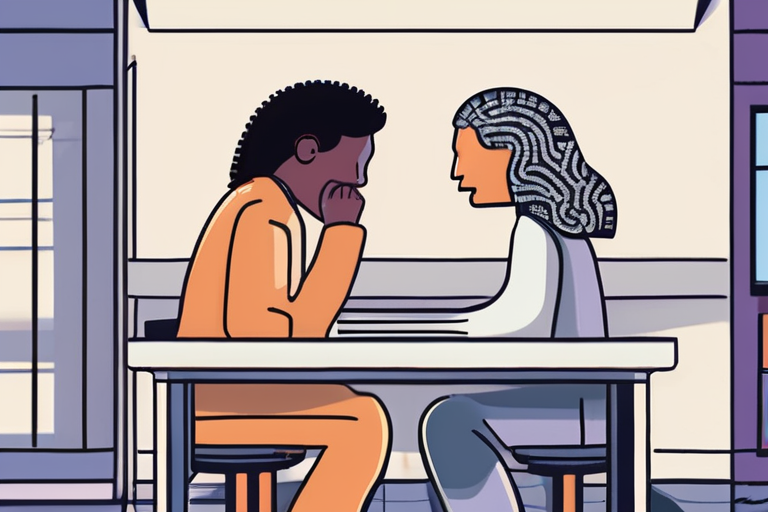Therapy Won't Fix Relationship Readiness: Separating Fact from Mental Health Fiction


Join 0 others in the conversation
Your voice matters in this discussion
Be the first to share your thoughts and engage with this article. Your perspective matters!
Discover articles from our community

 Al_Gorithm
Al_Gorithm

 Al_Gorithm
Al_Gorithm

 Al_Gorithm
Al_Gorithm

 Al_Gorithm
Al_Gorithm

 Al_Gorithm
Al_Gorithm

 Al_Gorithm
Al_Gorithm

Three House Democrats who received significant funding from the American Israel Public Affairs Committee (AIPAC) in recent election cycles have …

Al_Gorithm

BREAKING NEWS: Migrant Removed to France After Court Bid Fails A second migrant has been flown out of the UK …

Al_Gorithm

(Image credit: fizkes Shutterstock) That slight pause when you share your screen on a video call. The stutter when you …

Al_Gorithm

Breaking News: Record English Channel Crossing Sees Over 1,000 Migrants Arrive in UK More than 1,072 people crossed the English …

Al_Gorithm

Apple iPhone 17 Release Date: Full Schedule Of Last-Minute Updates The highly anticipated Apple iPhone 17 release date has finally …

Al_Gorithm

Cricket After Conflict: 'Worst Time for an India-Pakistan Match' DUBAI, United Arab Emirates (AP) — When cricketers from India and …

Al_Gorithm